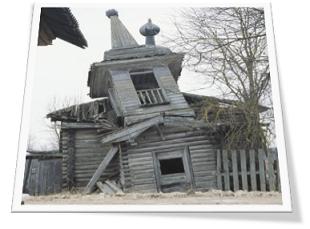Fighting Error in the Church
Fighting Error in the Church
Sometimes it may seem that we spend too much time refuting falsehood. All of us are chagrined at the preponderance of error both within and without the Church. We may write off those who attempt to combat it and set forth the truth in clarity over against it as "heresy hunters." The term is used pejoratively; but should it be? Take a quick look at the Books of the New Testament, merely scratching the surface, and see what you think.
- In the Gospels Jesus warns against false teachers, speaks of wolves in sheep's clothing and the "leaven of the Pharisees." The record of His ministry is one of conflict with those who refused to accept the teaching He set forth.

- Acts contains the record of the church's first major controversy over whether or not a person must become a Jew before he could qualify as a Christian. A church council was called to settle the matter. Paul goes to lengths to warn the Ephesian elders about wolves who would devour the flock and schismatically draw away disciples to themselves.
- Romans is an entire doctrinal treatise about justification by faith alone in contrast to salvation by works, and how sanctification follows thereafter. In it, Paul also takes up the rejection of the Jewish church.
- 1 Corinthians is loaded with problems; schism, misuse of gifts, church discipline, marriage and divorce, and on, and on, and on.
- 2 Corinthians takes on false apostles who had invaded the church and charged him with pretending to be an apostle. The place of apostolic authority is set forth, along with the qualifications of an apostle.
- Galatians is a sterling defense of Justification by faith alone over against those who taught otherwise, and were upsetting the church by Judaistic legalism.
- Ephesians is less controversial, being a universal epistle rather than directed to the adverse circumstances of an individual or a congregation.
- Philippians deals with a split in an otherwise good church. But it has to do with self-centeredness and sets forth a key Christological passage.
- Colossians is consumed with fighting Judaistic Gnosticism.
- 1 & 2 Thessalonians take up false teaching about the Lord's coming and eschatology.
- 1 & 2 Timothy & Titus teach "healthy" doctrine over against many false ideas. And, in them, Paul doesn't hesitate to name specific heretical individuals.
- Philemon is a welcome exception.
- Hebrews, in its entirety, combats all influences that would cause Jewish Christians to revert to Judaism.
- James utterly destroys the idea that one can have genuine faith that does not result in good works.
- 1 Peter explains how the New Testament church is no longer a physical political entity, but that the church is now the spiritual people of God, the new Israel.
- 2 Peter warns against scoffers and libertines unsettling the church and reveals the true picture of final things.
-
1 John argues quite effectively throughout the book against Gnosticism of a Cerenthian sort.

- 2 John warns against hospitality for heretics.
- 3 John deals with church discipline gone so far astray as to virtually destroy a church.
- Jude throughout its entirety is an exhortation to contend against the libertines who invaded the church that failed to listen to the warnings in 2 Peter.
- Revelation speaks of the warfare of God against apostate Judaism, the first persecutor of the church, and Rome, the second persecutor, and predicts the fall. It also mentions cults like the Nicolaitans.
Now, in light of the above, if you can, tell me why we should not be prepared to detect and refute falsehood in the Church.

Add new comment